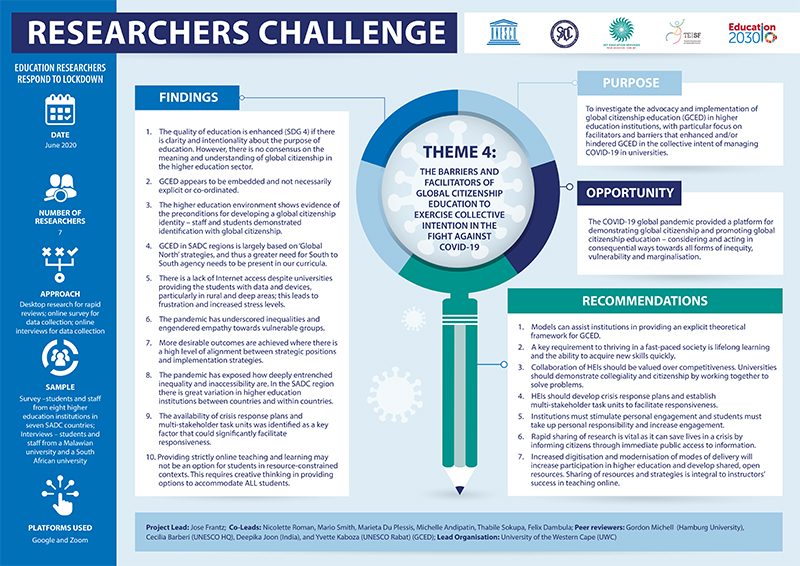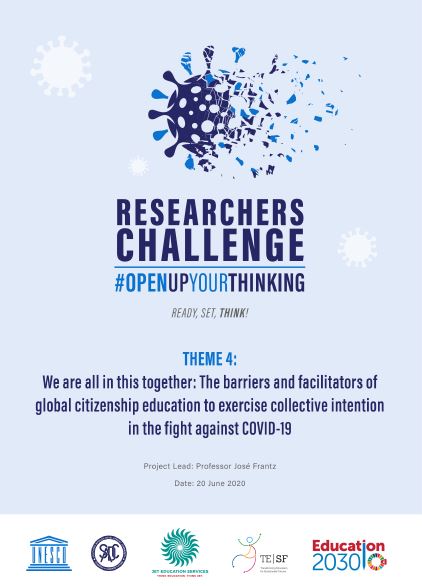Theme 4: Exercising global citizenship amidst COVID-19

Thematic lead: Jose Frantz
Co-lead: Nicolette Roman, Mario Smith, Marieta Du Plessis, Michelle Andipatin
Peer Reviewer: Gordon Michell (Hamburg University), Cecilia Barberi ( (UNESCO HQ), Deepika Joon (India), Yvette Kaboza (UNESCO Rabat) (GCED)
Lead Organisation: University of Western Cape (UWC)
Background
Almost no country is spared from COVID-19. In four months, over 4 million people have been infected and the virus continues to spread. The virus in fact, takes advantage of human connection – in public spaces, meetings, religious gatherings, weddings, funerals and even in our homes. As the 21st century has almost perfected the crossing of national boundaries, the planes, ships, trains, buses became the natural carriages of COVID-19. In some countries, testing and contact tracing were followed by strict surveillance measures while in others, authorities had to call in the military to execute some of its measures. In response, a number of people raised the issue of human rights violations. In a few countries, in spite of the orders of lockdown, some groups gathered to protest the restrictive measures.
Download the final report and infographic
Key Research Questions
The main question of this theme is: Which barriers and facilitators enhance and/or hinder the implementation of GCED during the collective intent of managing COVID-19 through higher education? Additional questions include but are not limited to:
- What is the global perspective of managing COVID-19 in higher education with the intention of developing global citizens?
- How do institutions of higher learning demonstrate intentionality towards university developing global citizenship;
- What are the knowledge, attitudes, skills and values of the university community towards Global Citizenship/Education during COVID-19;
- How prepared and responsive is the university community towards the management of COVID-19;
- What is the collective intention of the university population towards managing COVID-19 in higher education.
- What are the barriers and facilitators of global citizenship education within the higher education sector.
Limitations
The disparity in access to devices, as well as stable and affordable internet has been well documented. Across the Southern African Development Community (SADC) large discrepancies exist that would impact the sampling frame across all studies using digital platforms.


